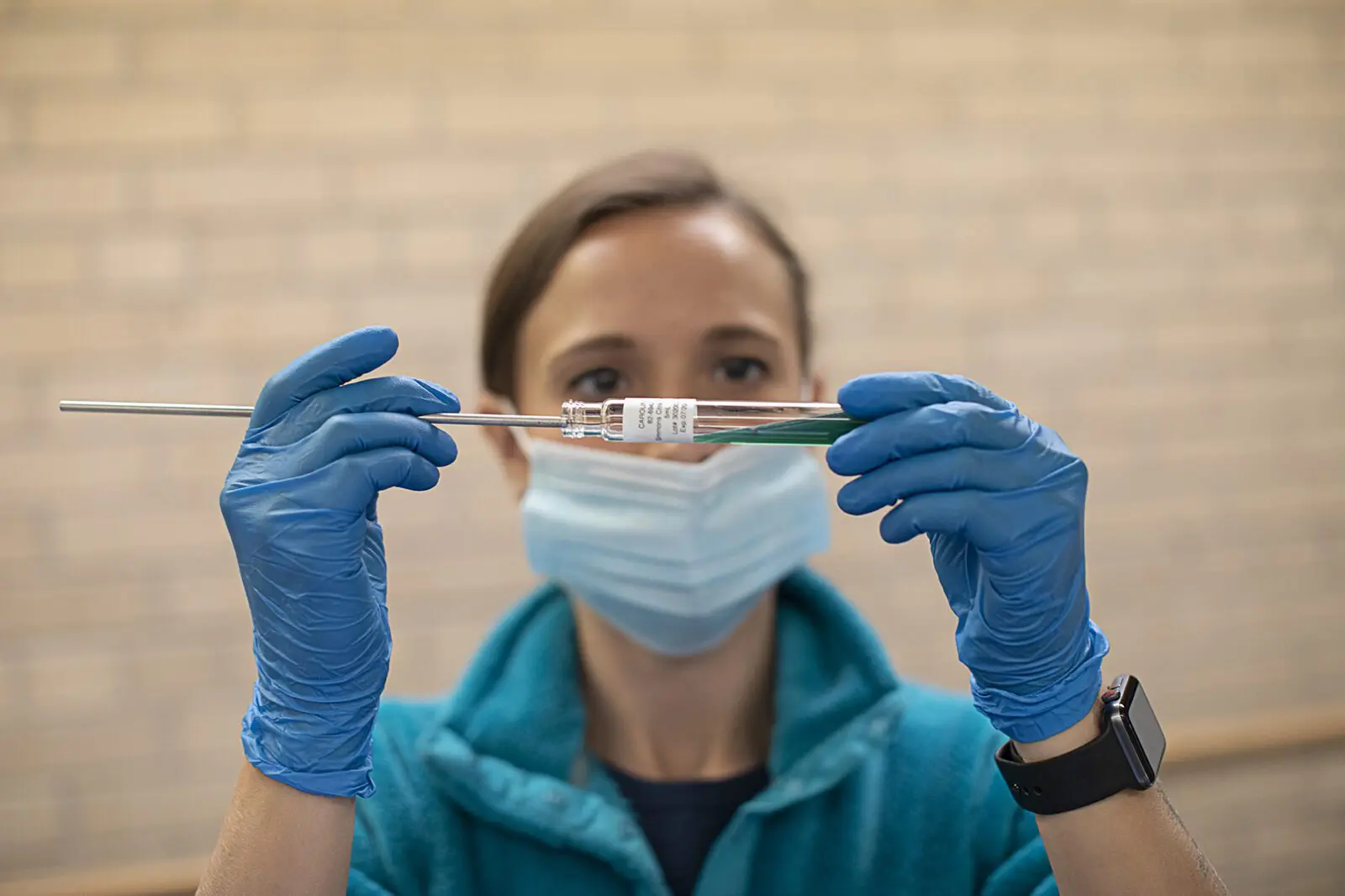Improving Your GPA for Med School
-
-
Last updated: September 9, 2025
8 Things to Know About Improving Your GPA to Get Into Medical School and Other Professional Healthcare Programs
Start now to improve your chances of being accepted into medical school or other professional program.
Your college GPA is crucial for getting accepted into medical, dental, physician assistant school or another healthcare professional program. But you may have questions.
What if my GPA isn’t strong right now? Can I still get into med school or another professional program? Can I learn how to improve grades quickly?
Improving your GPA is possible, and the earlier you learn how to improve your grades, the better. You don’t need a perfect GPA to get into a healthcare program. The most important part of boosting your GPA is getting it to reflect progress.
How to get into med school after college by improving your GPA
“You want to get your GPA up to a level where a selection committee will consider you,” says Jason Thoen, Ph.D., of Northwestern Health Sciences University (NWHSU). “Then, hopefully, factors like your admission test score, personal statement, interview performance, and other background information will convince them you’re a worthy candidate.”
Dr. Thoen is an associate professor and chair of the natural sciences department at NWHSU. He’s also chair of NWHSU’s Post Baccalaureate Prehealth program , which offers courses, guidance, and other opportunities to help students prepare for professional healthcare degree programs.
Thoen offers valuable information on:
- Improving your GPA.
- How to get into med school after college.
- How GPA is calculated.
- How to improve your grades now.
Below are eight things you should know about how to get into med school after college. They also apply to getting into other professional programs.
1. Understand that your past grades can’t be “replaced” but…
Students are often surprised to learn that retaking a class does not actually replace the original grade. “It’s more accurate to say that the two grades will be averaged,” Thoen says.
In other words, your undergraduate grades are forever. Getting A’s from here on out will help, but there are other strategies for how to improve grades, including taking additional coursework to bring your overall GPA up. Thoen says improving your GPA is not necessarily easy, but it can be done.
Thoen references a recent student whose undergraduate GPA was under a 2.5. “He came here and did a bunch of additional rigorous coursework,” Thoen says. The student had help developing a plan for how to get into med school after college. “He did well, and he eventually got into med school. It took a lot of hard work, great performance in classes, and a little luck.”
2. Make sure your prerequisite courses are current
“You can’t take prerequisite courses and then expect that a program will accept them 10 years from now,” says Thoen. This is the caveat for getting into med school after college.
Many programs require prerequisites to be taken within five years of applying. But each school and program is different. “If there’s any doubt, I recommend you request a prerequisite review from the programs you plan to apply to,” says Thoen.
3. The story behind your GPA can boost your success in being accepted
Selection committees may weigh subjective factors surrounding a less-than-stellar GPA that can work to your advantage.
Your GPA will improve if you retake courses and perform better. Thoen says, “You’re sending a message that those old grades don’t reflect your current potential as an applicant.”
Also, if your GPA is clearly an application weakness, you’ll want to bring that up in your personal statement. “Explain what the circumstances were surrounding those bad grades. And if you make it to the interview stage, be prepared for the topic to come up again and have a compelling explanation.”
Note that factors like the following can, to a degree, offset a lower GPA:
- Your undergraduate GPA clearly shows an upward trend.
- You took an academically rigorous undergraduate course load.
- Your undergraduate college has a reputation for being particularly challenging.
4. Identify how much improvement your GPA really needs
Investigate your target programs to determine how much focus you need on improving your GPA. You can start this research by visiting their websites. Some universities will actually list admission statistics like the average GPA of successful applicants. (Here’s an example.)
Also, you can calculate your general chances for medical school admission based on MCAT score and GPA using this resource.
“Programs and disciplines vary and so will each person’s situation. That’s why I hesitate to give specific numbers for improving your GPA,” says Thoen. “You can always check with the admissions department for the programs you’re considering. I will say, however, that it’s not always about ‘repairing’ a GPA.”
A person looking into PA programs with a 3.3 GPA may discover that GPA improvement isn’t the highest priority. It may be that they lack patient care hours, a common requirement for PA programs.
Or, says Thoen, “Let’s say you want to figure out how to get into medical school after college and you have a 3.5 GPA. Rather than focusing on improving your GPA by retaking a bunch of courses, you may want to focus on strengthening other aspects of your application. A strong MCAT score will be important and so will factors like demonstrating leadership, shadowing doctors, and writing a strong personal statement.”
5. The application process takes time, so plan accordingly
Be prepared for the actual timeline needed for getting into a program while you are retaking courses to improve your GPA. “I’ve seen students think they can do a couple semesters of coursework to improve their GPA, apply to programs, and then be in med school all within a year or so,” says Thoen.
But that’s just not realistic.
There are various situations to consider. For example, Thoen says, it could be a two or three-year timeframe. “And that’s if everything goes well and you’re able to get into a program on your first try.”
6. Find like-minded classmates with similar goals
Many will be primarily on their own while preparing to retake upper-level science courses at a local university. Try to find others who are working toward getting into a professional healthcare program. Thoen says it can be extremely helpful to have classmates who are working toward similar goals. There are many things you can do to refocus your efforts to generate a massive difference. Some may partake in joint or group study sessions. Other students might discuss how to improve grades while supporting and encouraging each other. Most importantly, this helps everyone become accountable to each other.
7. Strengthen your application through community involvement
Besides improving grades, making your application competitive may involve more than just retaking courses. Job shadowing, volunteering, and demonstrating leadership, says Thoen, can be especially important as a selection committee considers your overall qualifications.
8. Consider a post-baccalaureate pre-health program
Consider a post-baccalaureate pre-health program if you need to redo basic sciences or want to improve your GPA. This program can provide assistance in both areas.
Think of how to improve grades as a journey with several stages. A major benefit is that you can potentially have valuable guidance through these stages, Thoen says.
Stage 1: Help Strategizing for Your Future.
In a PBPH program, you will sit down and speak with an advisor who specializes in helping people in similar situations. This process happens before you even enroll in classes.
Stage 2: Support to Be the Best Student You Can Be.
Once you start, you’ll have your own advisor to rely on for guidance. This will be in tandem with experienced professors who are familiar with the unique academic needs of post-baccalaureate students.
Stage 3: Assistance in Applying to Programs.
Your PBPH advisor and course professors can continue to support your efforts through various means. Some advisors may provide letters of recommendation or offer insights for your personal statement. Furthermore, some may help you prepare for entrance exams.
Stage 4: Ongoing Guidance.
If you end up reaching your goal, that’s great! But what if you still need help? Being in a PBPH program allows you to receive guidance on what your next steps can be.
The Bonus of a PBPH Program.
In a PBPH program, you’ll have support in improving your GPA. You’ll also have advantages like:
- Enjoy a support network of fellow PBPH students.
- Gain access to a wide range of opportunities, like volunteering and job-shadowing, to make you a more competitive applicant.
- Participate in mock interviews to prepare for the real thing.
- Practice taking admission tests.
- Connect with current and retired healthcare professionals for advice and insights.
- Perform directed research.
Updated: 8/28/2023








